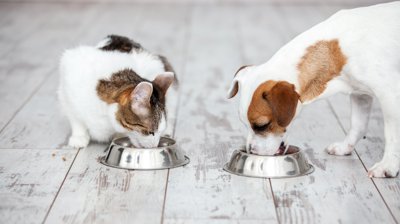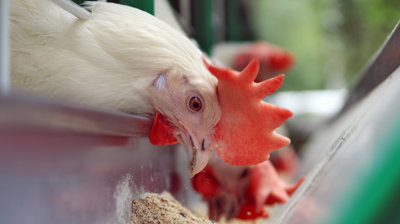What is yeast beta-glucan & what are the benefits?
Yeast beta-glucans have countless benefits for animal health. From increasing resistance against microbial infections to improving immune status, these polysaccharides have so much to offer.
But what exactly are yeast beta-glucans and how are they used in animal feed? In this blog, we’ll delve into the specific ways in which yeast beta-glucans can be utilised within the livestock industry.
What are yeast beta-glucans and how are they produced?
Yeast beta-glucans are naturally-occurring polysaccharides which are found in the cell walls of yeast, such as Saccharomyces cerevisiae, commonly known as baker's yeast.
There are different types of beta-glucans, from various sources including yeast, fungi and plants. Amongst these different beta-glucans, those found within Saccharomyces cerevisiae have been shown to be highly bioactive.
The manufacturing or processing techniques used to extract beta-glucans influences their structure. If the structure of beta-glucans is compromised or changed during the manufacturing process, it may lead to a reduction in immune health benefits observed in the final product.
Here at Ohly, we have developed a safe and reliable method for producing and purifying beta glucans, consistently maintaining our high quality standards.
How are yeast beta-glucans used in animal feed?
Dietary supplementation with yeast beta-glucans is an effective way to improve feed conversion ratios whilst reducing mortality and increasing resistance against microbial infections.
State of the art glucan-rich products can contain more than 70% beta-glucan. These products combine a low inclusion rate with a high bioavailability and immune supporting properties. They can be added to animal feeds to help reduce the use of antibiotic growth promoters. With the World Health Organisation advising that the use of antibiotics for growth promotion is restricted, beta glucan products offer a safe and sustainable solution.
With a consistently high product composition, beta-glucans ensure reliable results and can be used across the livestock industry including for poultry, pigs, ruminants and aquaculture.
What are the benefits of using yeast beta-glucan in animal feed?
Yeast beta-glucans offer a vast number of benefits when used within animal feed. These include:
- Increased resistance against microbial infection - as more antibiotic-resistant strains of bacteria continue to emerge, beta-glucans offer a sustainable solution. These glucans activate macrophages, which are a key component of the non-specific immune system, improving the animal's ability to defend against microbial infections.
- Boosting the immune system - since yeast beta-glucans help to activate both innate and adaptive immune systems, they help to improve the animal’s overall immune status. From newborn animals with immature immune systems to fully-developed animals that require extra immune support, beta-glucans are the ideal supplement.
- Improved gut health - beta-glucans promote gut health in animals by acting as prebiotics. They can serve as a fibre source for beneficial gut bacteria, helping to maintain a healthy balance of microflora in the digestive system.
- Improved growth performance - in certain animal species, including poultry, pigs, ruminants and fish, supplementation with yeast beta-glucans has been associated with improved growth performance. Increased feed intake, enhanced weight gain and improved feed efficiency all lead to better overall growth performance.
- Enhanced vaccine response - yeast beta-glucans are well known to be useful vaccine adjuvants, meaning they help to boost the response of the adaptive immune system after vaccinations. Yeast beta-glucans have been demonstrated to increase antibody titers after vaccinations.
With such a wide array of benefits, beta-glucans have so much to offer. If you’d like to find out more about our yeast beta-glucan products, get in touch with our team today.
Find out more
If you’d like more information about our yeast extract products and how they can be used in animal feed or pet food, get in touch with our team today.




